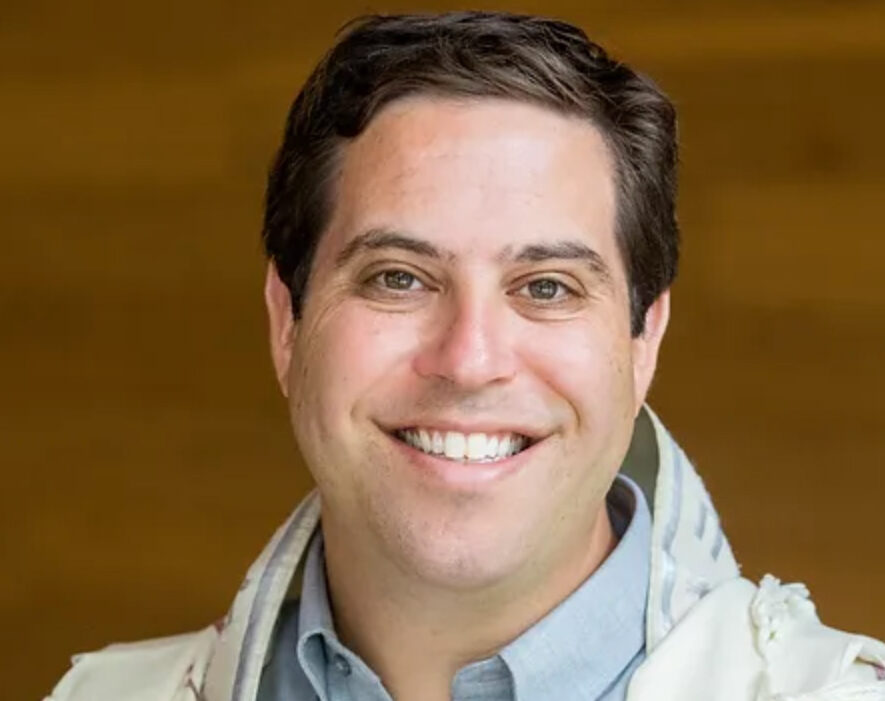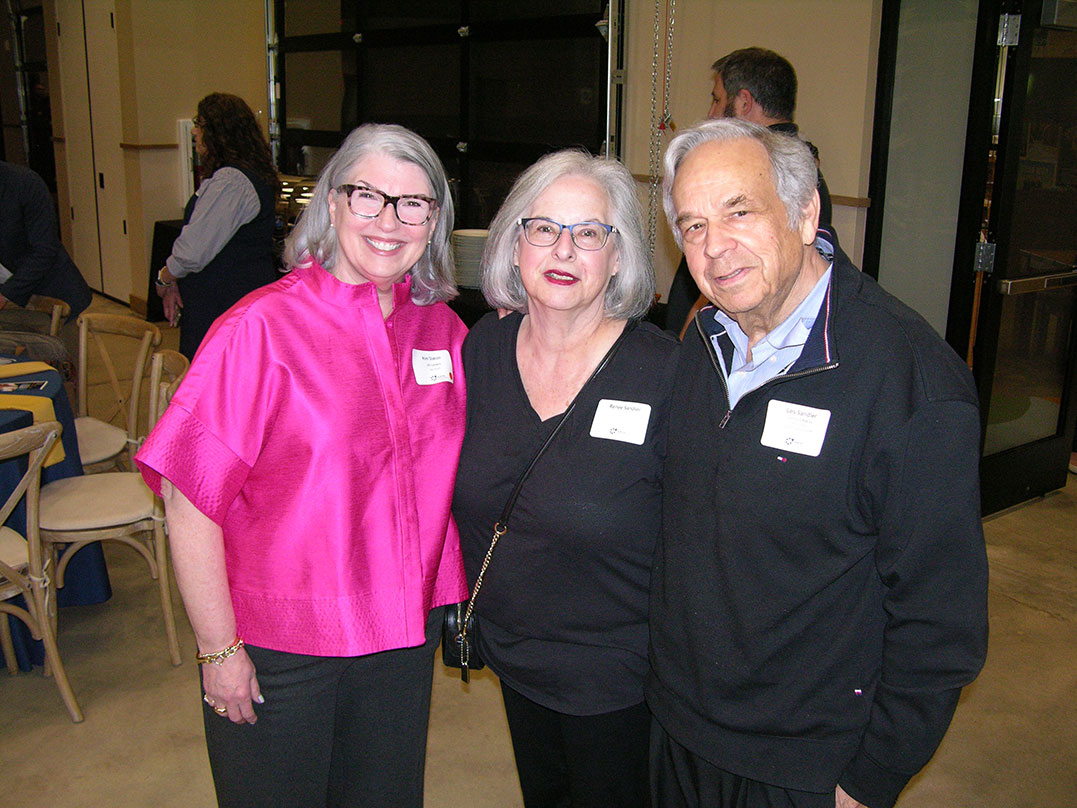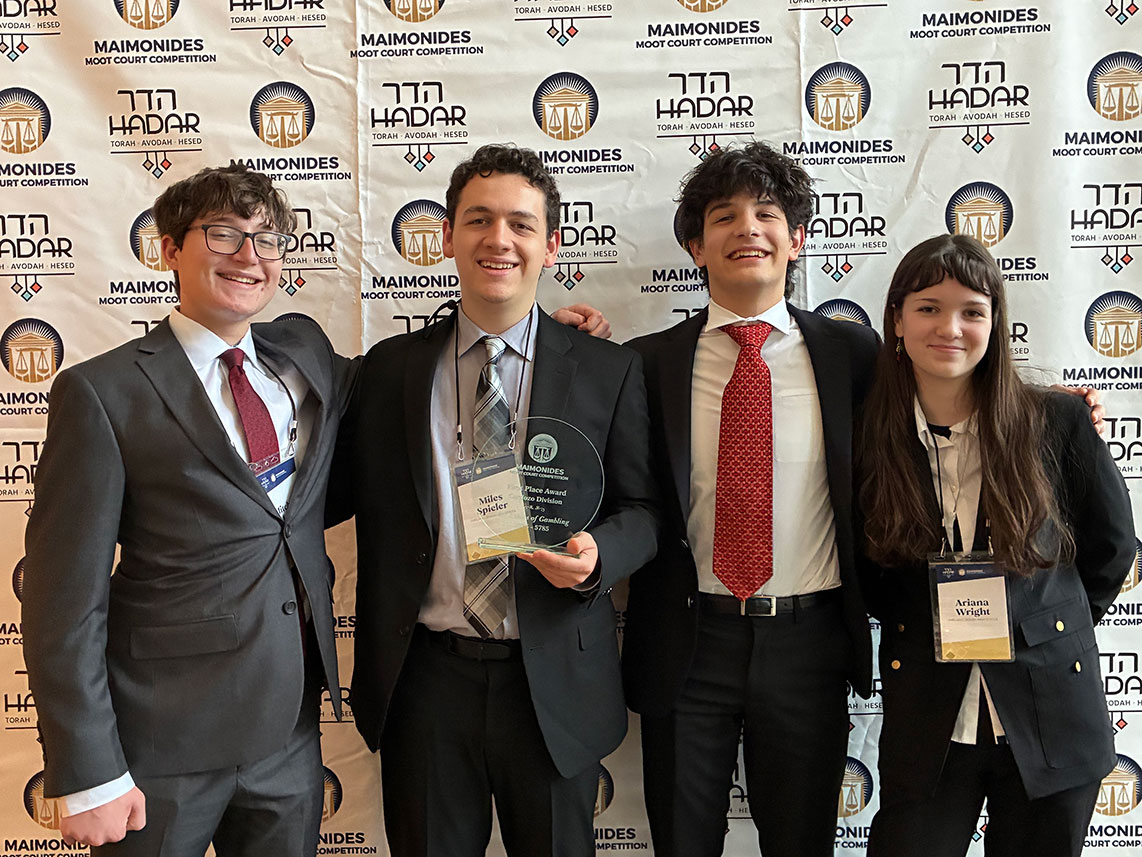By Melissa Hunter
Assistant Editor
It has been two months since Rabbi Neil P.G. Hirsch assumed his role as Senior Rabbi Successor at Isaac M. Wise Temple, and already he feels a strong connection to the synagogue and city.
Growing up in Houston, Texas, Rabbi Hirsch attended Congregation Beth Israel, a synagogue not dissimilar to Wise. “It’s the oldest synagogue in Texas,” Hirsch explained, and like Wise, “it has that blend of historical import in the Jewish community alongside (a) vibrant Jewish life today.” Hirsch was a student at the day school affiliated with the temple. “I grew up in the hallways of that synagogue for elementary school. The rabbis would come in and out of classes, and I got to know the clergy there growing up. My family was very involved. We were Friday night regulars. And I had some wonderful mentors who showed me what the rabbinate was.” All these formative experiences led Hirsch on his own career path to become a rabbi.
When the position to join Wise as Senior Rabbi Successor opened up, Hirsch was excited at the opportunity. One of the factors that attracted Hirsch to Wise was its innovative model of rabbinic succession, as well as the chance to work with Rabbi Kamrass. “I had been in my last congregation (Hevreh of Southern Berkshire in Great Barrington, Massachusetts) for just over nine years,” Hirsch said, “and in that capacity, I had seen and had the opportunity to lead a congregation with vision and with strategy. And here was the opportunity to come to a congregation where I know of no other rabbi currently in the American Reform Rabbinate who has both the impact and tenure that Rabbi Kamrass does.” Over the past two months, Hirsch and Kamrass have worked side-by-side. Given the chance to “learn Wise Temple from the person who knows it best” was incredibly exciting to Hirsch. Both rabbis said this approach is not common. “We’re really sort of blazing new territory,” Hirsch said. “And it was precisely for that reason that I wanted to work here.”
“Often, after a long-tenured rabbi steps down, the congregation either hires someone brand new, or they hire an interim rabbi who comes for one year while the congregation searches,” Kamrass explained. “Our plan was to not create that kind of disruption for the congregants and for the institution, and to bring someone in who could be part of the whole transition, to live it and see it and feed it with their own abilities and talents and then be able to take over the reins.”
One of the things Hirsch said he admires most about serving a large congregation like Wise is the complexity of the system. “It’s been totally fascinating. And the level of professionalism and the intricacies of this congregation, the way that it works so seamlessly, is remarkable. The leadership and staff care deeply about the success of this congregation.”
Hirsch’s primary focus during the first months of his position has been to learn about the members of the congregation. “I felt very strongly about making sure that I was spending time meeting the congregation, because I know of no better way to flatten my learning curve than to spend time with the people who make up Wise.
“So, for the last two months — and for the next couple of months — the majority of my time will be spent in conversation with congregants. By the time that we arrive at Rosh Hashanah this year, I will probably have met with 400 to 500 congregants.” According to Hirsch, these meetings are taking place in people’s homes, at Wise Center, and out in the community, and are all designed to hear members’ “Wise stories.”
“I love that,” Hirsch continued. “Their experience is my focus. It’s not about asking their opinion on the length of sermons or the color of the carpets. It’s about asking congregants if they can think back to a moment that they’ve had at Wise Temple or in the Cincinnati Jewish community, or in their own Jewish life, that stands out as a great exemplary moment? What does this community mean to you? And the stories are flowing. That’s great. That’s really great.”
This approach is part of the whole transition design. “Our board is hosting and gathering people together,” Kamrass added. “They’re a part of it and listening with Rabbi Hirsch. This model is not just an overlap of time. It’s a designed, intentional approach to transition. And I think that’s the key. In many ways, there may well be congregations that (will) want to do this going forward. And while all of it depends on unique factors such as who the people are and who the board leadership is and what the planning capacities are of such a group, there’s going to be some real learning and value that we think this model can bring if other congregations will ever do it.
Hirsch is also in the process of writing a dissertation toward a doctorate at HUC about halakha, the practice of Jewish law and ethics. “I’m studying and writing specifically on the topic of teshuva, repentance, and how teshuva actually operates. How do we hold ourselves accountable, and how do we forgive and move on and heal from wrongdoings that inevitably come our way in our relationships?” Hirsch explained. “That’s been taking up a lot of my Jewish academic headspace lately.
“I wouldn’t say I’m in the homestretch just yet, but I’m in the final stages of the doctoral process,” he added.
He will also be leading a class on this subject as part of Tuesdays with Torah. “I think we so often forget or don’t have clarity about how forgiveness actually works. There’s some really interesting research from social psychologists that I’ve drawn from about how we emotionally forgive that maps really nicely onto the Jewish practice of teshuva. And so I’ve had some fun drawing from different fields to bring all that together.”
When discussing October 7, Hirsch said it has not been an easy time to be a Jew in the world. “I never imagined when I was at HUC that combating antisemitism and the ripple effects of October 7th would be a major issue, if not the major issue, of my career. For the last however many years, I’ve spent a good deal of time working on bridge building in local communities to combat antisemitism. October 7th is the most recent incident of this antisemitism, but it’s been an issue that has been with congregational rabbis for years as we’ve seen increased polarization and civic discourse. Lately, there has been an intensification of what I think we’ve already all been aware of, and I think the best we can do is walk through it together.” Hirsch referred to a study by the Jewish Federation of North America released in the last two months that describes a surge in Jewish connection. “Moments like October 7th as well as the Tree of Life shooting remind us of our Jewishness and create a desire to be connected to people in our community. And so I ask the question, how do I help those who are looking to engage now in a deeper, more impactful way? I’m not a big believer in silver linings out of trauma, because that denies the trauma that people experience. That being said, the lessons that people are learning from October 7th and its ripple effects are that community matters.” For Hirsch, being able to facilitate that connection is important, as well as creating the right response and helping people who are feeling vulnerable.
As the high holidays approach, Hirsch hopes for a smooth transition for the congregation. “We are doing all that we can to ensure that, and cultivate excitement, interest and a desire to get involved.”
Hirsch and his family are also enjoying getting to know Cincinnati better. “This is all very new to us, and that is actually really exciting and we’re loving it. We had an amazing experience in our former community. It was where we started our family, and we have nothing but love for the community.” When the opportunity to come to Cincinnati became available, not only was Hirsch excited about serving Wise Temple, but also joining the rich Cincinnati Jewish community. “That was something we didn’t have access to before. We didn’t have a Jewish day school in our former community, and so the fact that our kids could be involved Jewishly in a meaningful way was incredibly exciting.” Hirsch mentioned Cincinnati’s strong Federation, the Foundation, the JCC, and “all of the things that make the Jewish Cincinnati community so strong institutionally.”
On top of that, Cincinnati’s overall cultural offerings were appealing to Hirsch and his family. “We’re fans of major league sports and that wasn’t something that we had, so the chance to go to a major league baseball game again was great!” He said enthusiastically. “We made it to our first F.C. Cincinnati game this summer, and that was a blast! Just being in a city with real city energy is something that we’ve been delighting in. Every day we explore and learn something new!”





